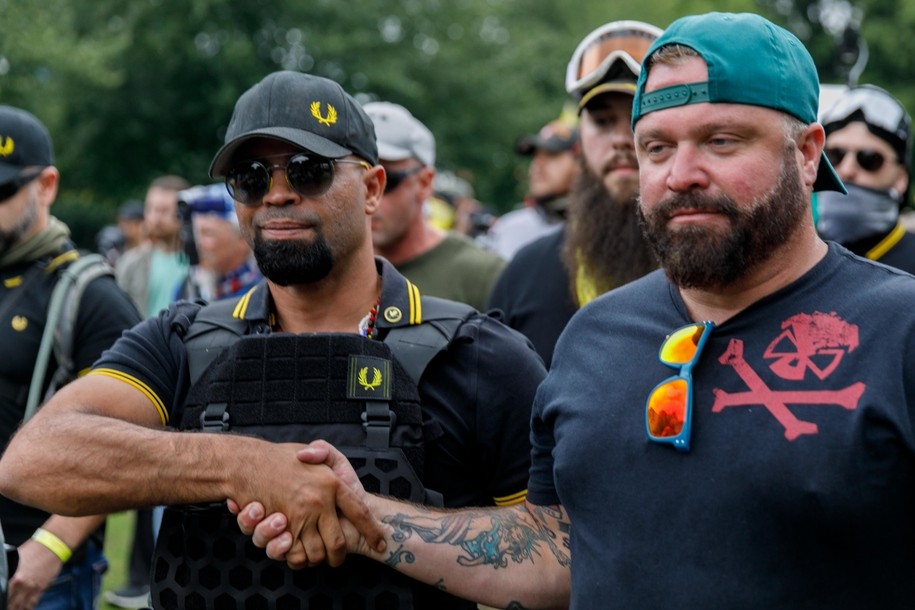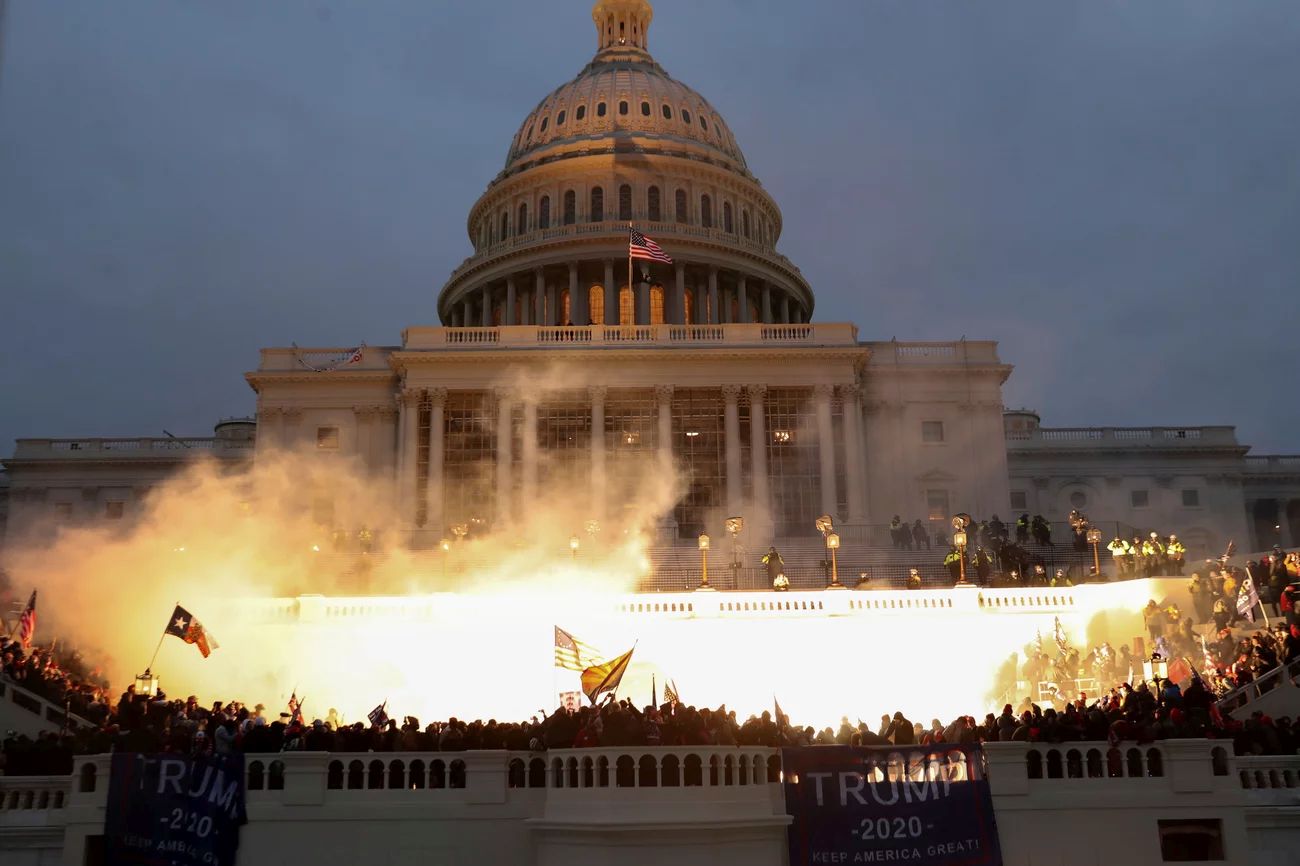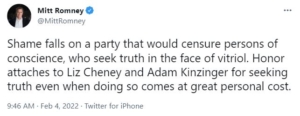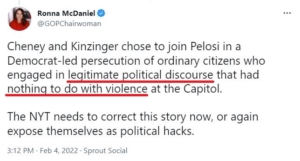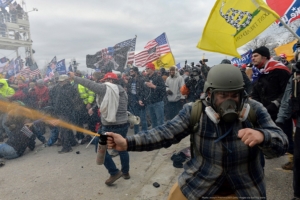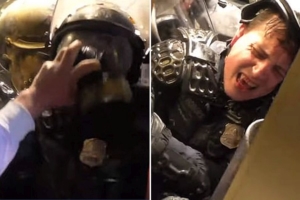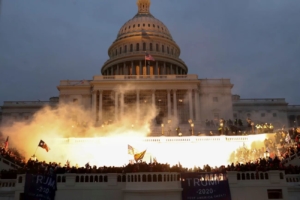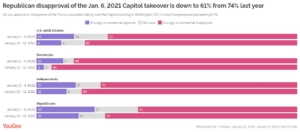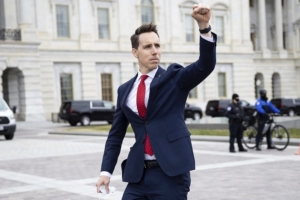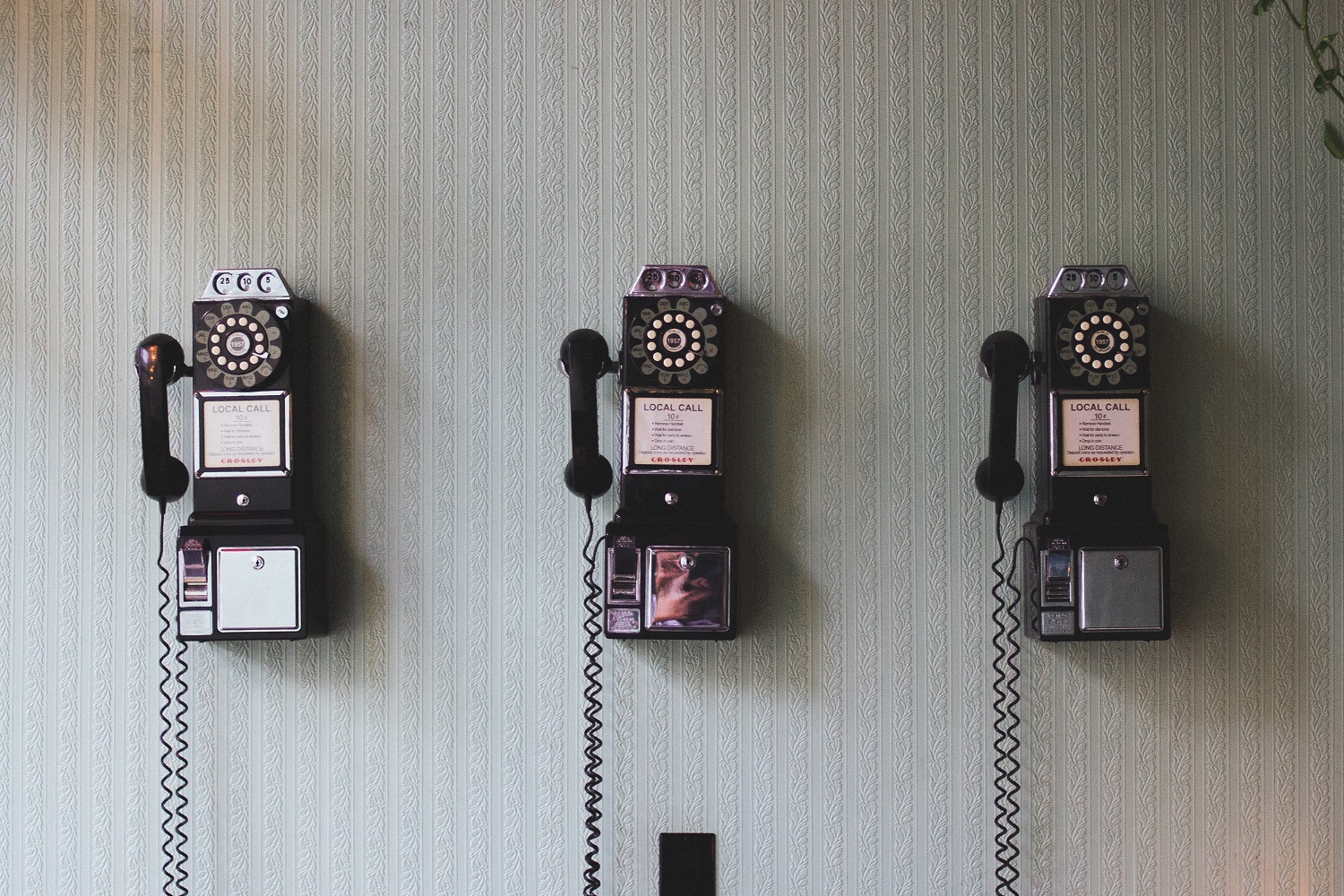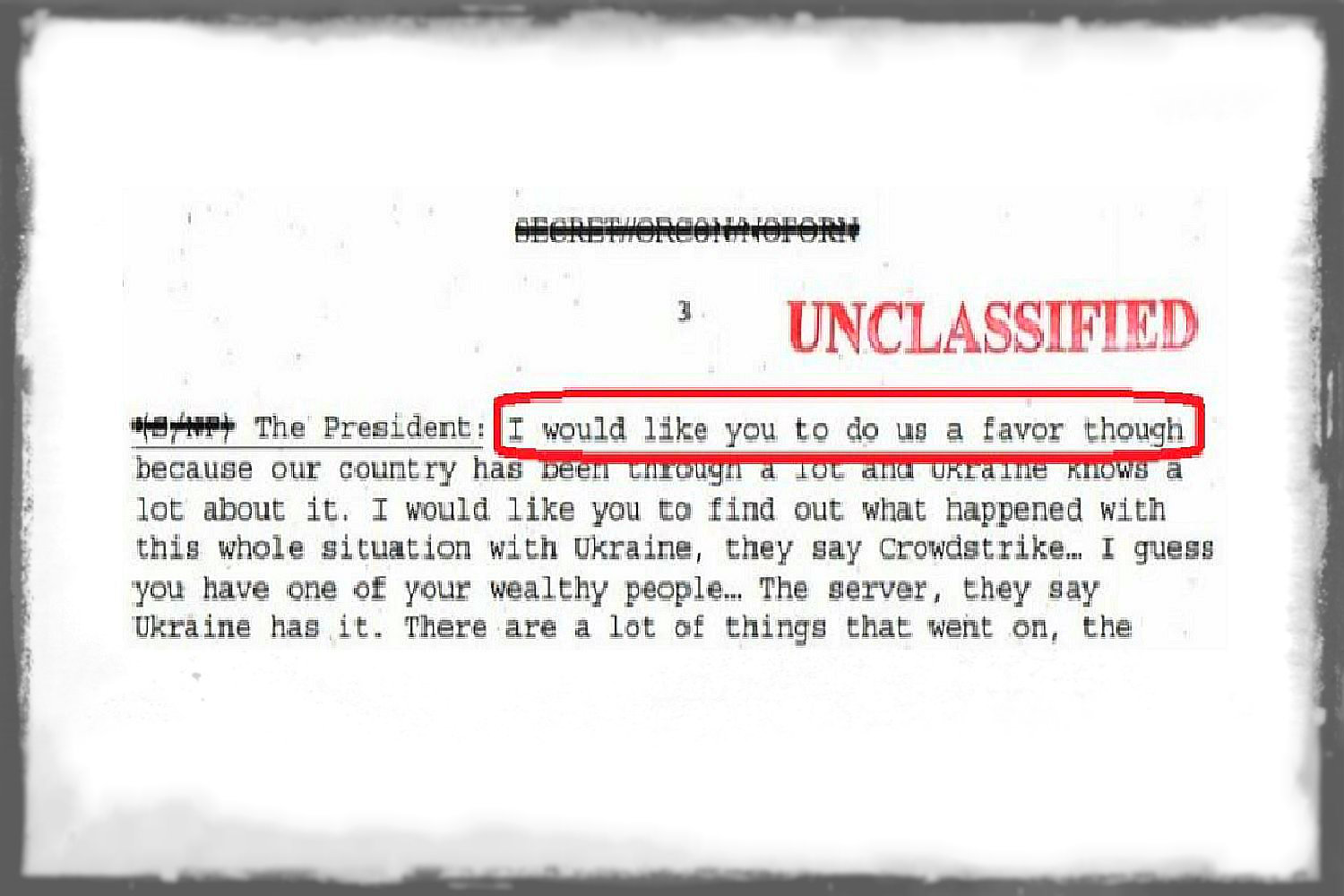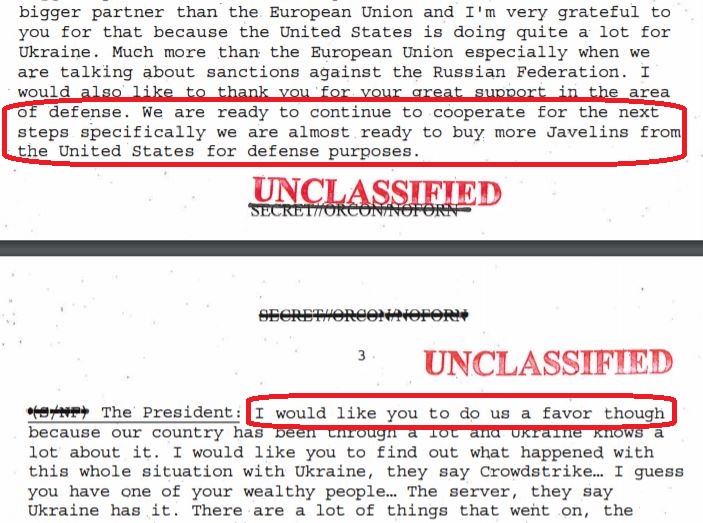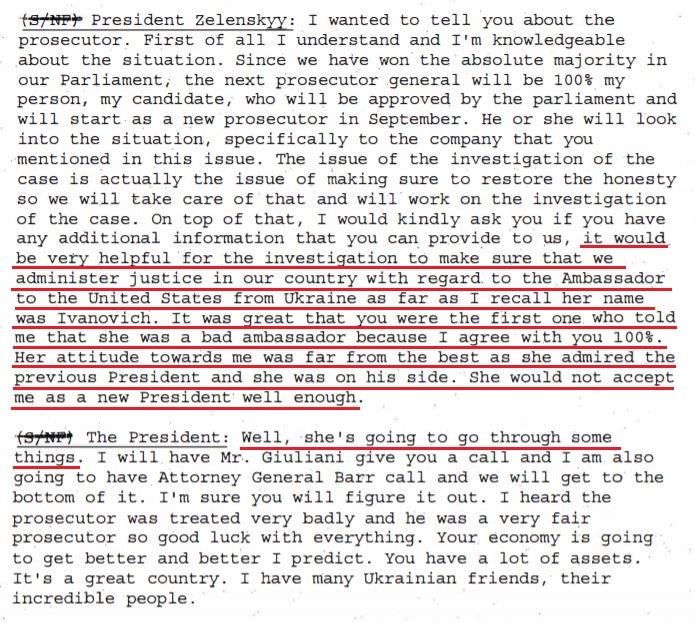THE RINGLEADER’S LAST(?) CIRCUS: Observations from inside the Proud Boys Seditious Conspiracy Trial
There was an occasion when I sat inside the courtroom for the Proud Boys seditious conspiracy trial where I caught Proud Boys ringleader Henry “Enrique” Tarrio’s eye.
Most days, due to rules at the Prettyman courthouse prohibiting recording devices and electronics in the courtroom itself, I reported from the media room with the rest of the press where I could watch proceedings on a closed circuit feed as I tweeted them out in real-time.
But a few times, so I could put eyes on the jury or the defendants, I would leave the windowless room to sit in the thick of it and take notes the old-fashioned way in court with my notebook balancing on my crossed knee.
We didn’t look at each other for very long.
Tarrio looked into my face and I into his. His eyes went slightly wide and searching for a moment as he, I suspect, worked out that I was press in short order. Not many reporters were covering the trial to begin with and it was very sparsely attended by the public so a new face was likely to stand out. And of course, I always come into a courtroom bearing a notebook and pen, so the dots, I presume, were pretty easy to connect.
But the look on his face that day is something I’ve thought a lot about recently and in particular, since he and fellow Proud Boys Joseph Biggs, Ethan Nordean, and Zachary Rehl were convicted of seditious conspiracy and a multitude of other charges for their roles in Jan. 6.
It was roughly midway through the four-month-long trial. The prosecution’s daily pace was stilted with defense objections on a near-constant basis. It seemed proceedings were getting terribly bogged down and I wondered how much of a witness’s testimony the jury could actually remember at the end of every day given the incessant interruptions and sidebars. Turns out they did just fine.
At this point, Tarrio’s co-defendants Zachary Rehl and Dominic Pezzola had not yet testified. It wasn’t clear at the time if they would. But it seemed nonetheless the defense was intent on putting up a fight every step of the way on grounds meritorious or not. With the defense willing to swing so big, I imagined, if I were a defendant in this trial, and swinging for the fences is pretty much all I’ve got, I’d suppose I would be happy to see my lawyers do it.
And considering all of this, when his eyes met mine that first time, there wasn’t a trace of anxiety on Tarrio’s face. In fact, it was the easiness in it that struck me. There’s an assertiveness that shades a person’s face when they have experience dealing with “delicate” situations but this was not just the look of experience with tough times writ large on his face.
There was pride. The look struck me as ego. It was confidence, baldly. I wished everyone paying attention to the trial could have seen his face in that moment so they could understand exactly what I mean.
I’ve been racking my brain as to where and when I’ve seen this look specifically before and what it reminded me of.
And then it came to me.
Tarrio looked at me that day in the same way I had seen politicians look when I covered Congress: It is the look of a person who knows they are selling something or they really want to sell something and there’s a lot of pressure behind their eyes for me to buy it or believe it.
Tarrio had nothing to say to the jury at trial, as is his right. And he decided that before Rehl or Pezzola would make their (ultimately tortured) appearances. But ahead of the jury’s deliberations, and without a federal prosecutor to face, Tarrio had plenty to say during a “Spaces” event held on Twitter and hosted by the right-wing Jan. 6 conspiracy theory peddling Gateway Pundit.
In so many words, Tarrio defended his decision against testifying and it largely sounded like he was griping about the strength of the government’s case against him. More directly, he claimed prosecutors would misconstrue his words or bring out old statements unrelated to Jan. 6 to hurt him if he took the stand.
Before the verdict came down, Tarrio said he would respect the jury’s decision and that he felt he and his co-defendants were “in a good place.”
And that’s the tricky thing with someone like Tarrio. If your public persona has largely revolved around attempting to manipulate the press for your benefit, what is said or done in the press sort of rings hollow once you know what his game is.
Now all things being fair, perhaps he really believes he’s innocent. Or perhaps he knows he is guilty in his bones. I ask, even if Tarrio himself stated these positions publicly, how does one trust him?
Perhaps for his supplicants, friends, lovers, foot soldiers and the lawyers paid to serve him, it is easier.
But for the rest? For the rest of America that believes the jury rendered a fair verdict and found him guilty of orchestrating a seditious conspiracy—what basis do they have to trust a word Tarrio or his ilk utter about Jan. 6 ever again?
He’s not playing to the American public at large. He knows his audience. But I write this piece offering a window into a person I observed for 60 days because I realize most Americans don’t know who Tarrio is at all. That seems imbalanced to me given the liberties Tarrio and his co-defendants attempted to forcibly take with their fellow American’s votes in a presidential election.
(I wish more people could have seen the trial in action but even I, who champion transparency, go back and forth on whether cameras in every courtroom would be truly beneficial or if it would turn every defendant into an aspiring reality-tv star.)
At trial, Tarrio was closely focused, regularly taking or passing notes, especially during witness testimony. He didn’t slouch moodily in his chair or seem out of sorts when tensions ran high between U.S. District Judge Tim Kelly and his co-defendants’ attorneys.
I watched him whisper to people at a crowded table populated by his co-defendants and their attorneys. The stakes so high, he was an ever-active party to his own case.
Rehl sat to Tarrio’s left. Ethan Nordean to his right. They were nearly shoulder to shoulder. Joseph Biggs and Pezzola sat furthest away from Tarrio though along the same side of the table. Many defense attorneys were squeezed onto the opposite side or at the ends of the table though Tarrio’s attorneys often sat at another long one just adjacent to him. He was most talkative outside of the jury’s presence though their presence didn’t stop him, really.
He was always “on” it seemed. I watched him exchange what looked like very friendly words with a young female paralegal sitting just across from him on occasion. I watched him pour her a glass of water and another time, I watched as he accepted a piece of gum or a mint she offered with her smile broad and eyes tender. He mouthed ‘thank you’ at her, grinning back as he did before passing another sticky note to a lawyer at the table.
Tarrio’s confidence may have also come from knowing that he had at least one person watching in the pews from time to time who wrote for the Gateway Pundit. This individual once professed to me in the hallways of Prettyman that she was a “friend of the defendants.” She also said she respected how I covered the trial even if she disagreed with me politically. The truth is, she doesn’t know my politics beyond what she presumes of course, and more importantly and this may be a concept unfamiliar to some, but my politics don’t determine my reportage. The point wasn’t one I felt like making so I thanked her politely and went about my work.
Meanwhile, I spent weeks watching Tarrio elicit more than one or two laughs or smiles from U.S. marshals when they would engage him in passing chit-chat on breaks or at the start of a trial day.
A real charmer that Tarrio fancies himself, I would think to myself as I watched him in court whether in person or from the media room.
Tarrio’s smiles came easily in that courtroom.
Though I welcome levity in its various forms, even yes, in a federal courtroom, his consistent lightness stood out in such stark contrast to the moment. To the grueling pace of the trial. For someone potentially facing 20 years in prison plus and squaring off with federal prosecutors that had been building a case again him for over a year, Tarrio exuded what seemed like an unfounded optimism in the eventual outcome. Online since the trial, he’s expressed his frustration of being kept in isolation in detention for 23 of 24 hours a day. He has lamented a weaponized Justice Department. It’s the same song jurors heard in the Oath Keepers case to some degree or another. It’s the core argument by J6ers to fundraise.
Back on April 26, before jurors went into deliberations, Tarrio said: “I’m going to be dead honest: If you walked in the building, you know, I agree, maybe you should get hit with trespass. If you assaulted a police officer, fine, get hit with assault on a police officer. If you broke something, if you stole something, get charged that way…What we’re seeing here with a lot of these cases is they’re overcharging these cases, they want to give multiple years, decades, in some of these cases.”
But I ask, again, who can trust Tarrio’s assessment? The jury couldn’t. Not on the topmost charge anyway. Yet Tarrio said before the conviction, he got a fair trial. Yet later, another message that appears as “forwarded to the Proud Boys,” from Tarrio’s Telegram account stated: “The fight isn’t over. This is just the beginning.”
On the day I looked into his face, that was the face of Henry “Make it a Spectacle” Tarrio.
I think back to what his own lawyer Nayib Hassan, asked of one Proud Boy witness at trial, George Meza aka Ash Barkoziba. Did Meza understand Tarrio liked to “razzle-dazzle” people and the media? Did he understand Tarrio was more a “showboater” than a “showman?” Whatever difference between those two labels Hassan was trying to make was unclear and an objection to relevance on the question was sustained by Judge Kelly. Hassan left it alone. And I suppose for good reason—is Tarrio about spectacle or is Tarrio leadership? Does he, in fact, believe he is leading a (fascist) movement? An answer to either one of those questions in a courtroom could be damaging because it begs another: so, does Tarrio engage in criminal conduct because it’s fun and he is an agent of chaos or does he genuinely believe it is his imperative to “save” America, the rest of his fellow Americans views on that be damned.
After the verdict dropped, Tarrio went on Telegram and shared a 2001 quote from Nelson Mandela: “It always seems impossible until it is done.”
Drawing on Nelson Mandela for inspiration is understandable but let’s be clear: Tarrio is no Mandela.
Where Mandela helped lead a nation out of apartheid at great personal sacrifice and imprisonment and helped create a multi-racial democracy, Tarrio, a jury of his peers has decided, conspired with a group of men to stop a democratic process by brute force.
And Tarrio did that by overseeing a network of men who spoke of “fash[ing] out,” as they espoused bigoted and racist views that allowed their anger or bloodlust or some combination of both to remain at a constant simmer. And unlike Mandela, who condemned prejudice and hatred, no evidence emerged at trial of Tarrio condemning violence or hatred. No, in fact, and instead, Tarrio’s lawyers worked overtime to keep out details that could have revealed Tarrio’s true colors, like when he burned a Black Lives Matter flag outside of a historic Black church in December 2020.
Mandela and Tarrio really only share one quality and it is in a very general sense. They were both leaders of other people in the typical understanding of the word. But that’s it. As a leader, Mandela pursued peace and equality for subjugated human beings. Tarrio pursued a narrow, deeply selfish vision of a country subjugated by views held by the Proud Boys and their supporters.
After considering the overwhelming evidence and testimony of fellow Proud Boys both for and against the defense, the jury convicted Tarrio, Nordean, Rehl, and Biggs of seditious conspiracy as well as conspiracy to obstruct an official proceeding, and obstruction of an official proceeding. Only Pezzola, who wrestled a police riot shield away from an officer before using it to bash open a window and let rioters stream inside the Capitol, was deemed “too stupid,” by the jury to commit seditious conspiracy.
The charges start to lose some of their everyday meaning when you read them enough times in their cloying legalese. But stripped down, it is vital to understand the simple concept here. A jury found, save for one man of five, that the Proud Boys on Jan. 6, led by Henry “Enrique” Tarrio, decided their will should overtake the free will of millions of Americans who already cast their ballot against a candidate that Proud Boys preferred.
At trial, jurors heard testimony and reviewed evidence showing how many Proud Boys believed the election was stolen. Many of them bought into the bogus lie that Trump and his sycophants in Congress and in the right-wing mediasphere repeated for months.
And yet, it was never made perfectly clear: did Tarrio believe Trump’s Big Lie or was he too in on Trump’s grift?
Proud Boys didn’t come to D.C. to merely protest, a jury has agreed. They came to DC to commit acts of violence against the U.S. government and law enforcement. Proud Boys intended to stop Congress from doing its work so they might have another shot, even though it was far too late, to install their loser of the 2020 election into the White House.
Tarrio’s recent reference to Mandela reminds me of one of my own favorites: “For to be free is not merely to cast off one’s chains, but to live in a way that respects and enhances the freedom of others.”
Tarrio respected and enhanced no one’s freedom on Jan. 6, least of all and perhaps most ironically, his own.
When Oath Keeper founder Stewart Rhodes was on trial for seditious conspiracy last year, he appeared on InfoWars and referenced Nelson Mandela too in the sort of self-aggrandizing way he did with much else when he—unlike Tarrio—testified at his own trial.
On InfoWars Rhodes said, before jurors had deliberated: “You need to be willing to go to jail. I think Americans need to lose their fear of being indicted or put in prison. When you have a dictatorship you’re going to have dissidents. And if you’re going to have anybody standing up for freedom, some of you are going to go to jail and some of you are going to go to prison. But just like Nelson Mandela was willing to go to jail for life, he did 20 years, you have to be willing to do that. You have to be willing to take the hit if you’re a person who’s a freedom fighter and is standing up for rights. Because if you don’t, then what you become is a slave.”
It was evocative of the end-all-be-all, good vs. evil talk that he invoked in his draft letters to Trump beseeching him to invoke the Insurrection Act, raise Oath Keepers to aid him, and if necessary, help overturn the 2020 election results since they both knew they were “fraudulent.”
That both Tarrio and Rhodes cite Nelson Mandela would seem to speak volumes about how they internalize their conduct and their crimes. Or maybe just perhaps how they propagandize them.
In the past, I covered a trial involving an American terrorist sympathizer who provided material support to ISIS: Mohammed Khweis, the first American convicted by a U.S. jury of joining the Islamic State.
I watched Khweis deny strongly supported allegations against him on direct and I watched him crumble under cross. I watched him lie on the witness stand when his family was watching from the pews, some unable to hold back tears. I watched him nearly burst into tears himself when it was clear prosecutors had him in a lie. I recall, outside of the jury’s presence, a defense attorney asking the presiding judge if it may be a good idea to pull his family member out of the courtroom so Khweis would answer more freely.
After his trial, Khweis was sentenced to 20 years for providing material support to terrorists and for a weapons charge. Last year, after a successful appeal, he had his sentence reduced to 14 years after the weapons charge was dropped.
In an interview in 2022, Khweis said: “It’s still mind-boggling to me that I made this terrible decision.” After watching him in court in 2017 absolutely beside himself with anxiety, here in 2023 I would wager a guess that he probably means that.
To compare, Tarrio has expressed no such remorse to date. He’s offered a lot of thin excuses for his conduct, little real apology. Before jurors, his team painted him as a scapegoat for Donald Trump, blamed for Jan. 6 because Trump could not possibly be held to account. Before the jury began deliberating, Tarrio went on social media and called himself a “stepping stone” on a road that effectively ends with the death of the First Amendment.
The racist, misogynist, virulent, anti-Semitic, and anti-democratic rhetoric (and actions) expressed by Proud Boys were always defended at trial as “locker room talk” or part and parcel of their rollicking discussions about “self-defense” against leftists, antifa, and supporters of the Black Lives Matter movement.
It was just talk! It was always in good fun! How dare the government criminalize free speech!
This was, boiled down, the argument often delivered unsuccessfully at trial by Norm Pattis, a defense attorney for Joe Biggs. Pattis also represents Alex Jones. Maybe Pattis was at his wit’s end on the long side of a four-month trial or maybe it was an inside joke or maybe he did it to “taunt” the press he knows watches from the media room, but one day after returning from a break and before jurors had reentered chambers, Pattis took a moment to ham it up and perhaps unwittingly encapsulate just how unserious the defense thinks their clients conduct was on Jan. 6. I don’t know. But he leaned into a microphone and offered a short, guttural, “uhuru,” the Proud Boys mantra/chant invoked at their rallies, sometimes as a type of call and response.
He chuckled as he took his seat.
Tarrio had called the violent language of the Proud Boys “simple fun” in his media spot late last month. He even teased Lawfare reporter Roger Parloff, who, like me, covered the trial gavel-to-gavel, when Parloff recently mentioned Tarrio’s suit choice.
Ever the jokester, that Tarrio. A real laugh-riot.
Whoever Tarrio is or isn’t, whoever he speaks for, or proposes to speak for, this most immediate chapter in his life is now written thanks to a jury of his peers who represent checks in a greater system that he sought to tear asunder. Now, he and his co-defendants face what could be very lengthy prison sentences.
Tarrio has said his “fight isn’t over.”
Neither is the Justice Department’s.

